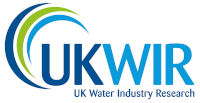Setting a framework for alleviating water poverty

Setting a framework for alleviating water poverty
Published On 29/05/2020
UKWIR has undertaken research designed to support decision makers and water companies in making water and sewerage bills affordable for all, and in the development of a strategy to address UKWIR’s Big Question ambition of How to achieve zero customers in water poverty by 2030’ in the UK.
The UKWIR report, Defining Water Poverty and Evaluating Existing Information and approaches to Reduce Water Poverty (20/CU/04/9), was launched at the Institution of Civil Engineers in London just before the coronavirus lockdown.
The project considered how water poverty is expected to change over the next two decades, looked at approaches to help tackle water poverty and addressed methods of measuring water poverty across the sector.
The project, carried out by Cambridge Economics Policy Associates (CEPA) and Sustainability First with Bruce Horton as Project Manager, had the support of UKWIR member companies, Water UK and OFWAT.
UKWIR Programme Lead for Customers, United Utilities’ Ben Nadel, welcomed delegates, both live and on-line, encompassing a wide range of stakeholders with an interest in water poverty both academically and in practice.
Regional Differences
Ben noted that there were regional differences in the definition and impact of water poverty as well as differences in regulation and in the local social context.
The project has drawn on a wide range of literature including reports and material from academics, government departments, the third sector and commercial organisations including from water companies themselves.
It also drew lessons from the fuel poverty measurement experience in the UK and looked globally for lessons and approaches regarding the reduction of water poverty.
Foundation Point
Ben emphasised that the report was a 'foundation point’ for producing a common understanding on the definitions of water poverty and how to address it.
Zoe McLeod from Sustainability First concentrated on risk factors that drive water poverty and how future pressures may impact on these.
The complex nature of water poverty means that different customers can find themselves falling into water poverty based on different personal circumstances and driven by a range of risk factors.
Six main drivers were identified relating to water poverty: absolute income, non-water living costs, income/bill volatility, unit cost of water, volume of water required and customer control and understanding.
A Pestle analysis had looked at political, economic, social, technical, legal and environmental impacts on water poverty and whether these were likely to be positive or negative.
Lewis Heather from CEPA spoke about the range of potential metrics and water poverty alleviation measures. He emphasised the importance of common language in defining and discussing measuring parameters.
A ‘percentage of disposable income’ metric has been identified as most appropriate based on a range of criteria and is being taken forward for detailed design development and testing.
It may be combined with other parameters such as ‘income threshold’’. Generally, there are advantages in maintaining flexibility for water companies in relation to how they target customers who may need support.
This should allow for differences in regional context and water company strategy to be reflected.
Ofwat / Water UK Support
Ofwat’s James Hawthorne outlined his organisation's work on water poverty saying how data is important in knowing what to measure.
Water UK are also working closely with UKWIR on this subject, especially given their Public Interest Commitment, on behalf of water companies in England, ‘to make bills affordable for all households with water and sewerage bills above 5% of their disposable income by 2030 and to develop a strategy to end water poverty’.
Water UK's Rob Wesley emphasised their support for the project and how they were carrying out a further piece of work on water metrics.
Ben Nadel closed proceedings by setting out how the report’s recommendations were to be taken forward. The recommendations were:
- the development of a metric for measuring water poverty at a national level
- water companies assess existing drivers of water poverty and future pressures on water poverty in their regions
- water companies develop or refine strategies for alleviating water poverty, considering the approach toolkit included in our report
- the development of a wider water poverty strategy, which includes the wider stakeholder community.
Finally, the project includes an ‘action toolkit’’ which maps actions against the key drivers of water poverty for UKWIR members to use.
